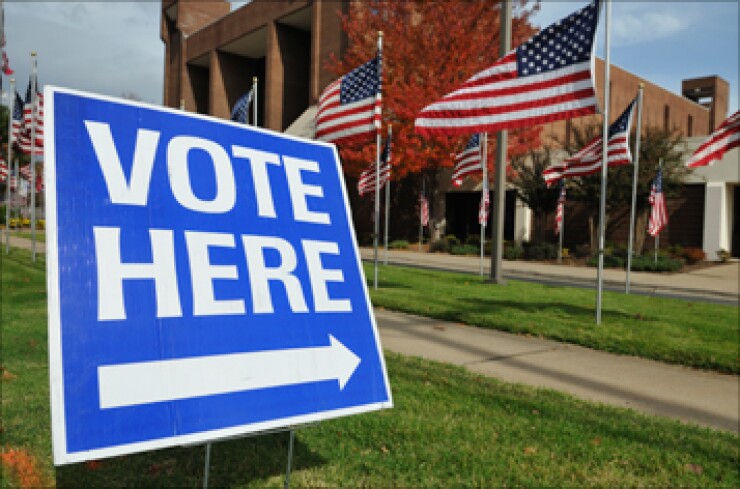
DALLAS – Four years after blazing a trail by legalizing and taxing marijuana sales, Colorado voters will consider another bold move: a measure to create the nation's first universal health care system.
The proposed Amendment 69 would authorize a 10% payroll tax, with two-thirds paid by employers and one third by employees. The new tax would provide about $25 billion per year in revenue for the proposed ColoradoCare health system, supporters estimate.
"By eliminating layers of bureaucracy and reducing administrative and other nonmedical costs, ColoradoCare will cover all residents and still cost less than the current system," proponents say. "Like Medicare payroll taxes, everyone pays according to income and pays the same rate."
Advocates claim the new system would provide a net savings of $4.5 billion in the first year alone by eliminating unnecessary administrative costs, using bulk purchasing power, and reducing fraud.
The healthcare measure is among nine statewide propositions. In a recent report, S&P Global Ratings called Colorado's combined tax proposals the largest on any ballot this year.
Speaking of the ColoradoCare proposal, S&P predicted that if it passes the initial effects of the measure would be "muted" in the early years.
"But with no obvious parallels in other states, the creation of such a state agency suggests the project would absorb significant administrative and legislative attention -- and potentially resources -- at the state level," analysts wrote.
Recent polling indicates that opponents are likely to prevail Tuesday after some prominent leaders, including former Gov. Bill Ritter, a Democrat, voiced opposition.
The program would not be a state agency, according to the plan, but operate as a cooperative.
Beneficiaries of ColoradoCare would be considered members who would elect a 21-member board of trustees to govern the program. The measure would create seven electoral districts that would need to be compact and contiguous and have roughly the same number of residents.
Trustees would serve four-year terms and receive "reasonable compensation and expense reimbursement," according to the ballot language.
The proposed system is permitted under the federal Affordable Care Act signed into law in 2010. If given a waiver, Colorado would be eligible for subsidies that would otherwise go to state residents to use on the private market.
Opponents of the plan are well organized and well-funded. An opposition group called Coloradans for Coloradans had outraised supporters nearly five-to-one, as of Oct. 31, according to campaign funding records. Supporters operating as ColoradoCare Yes received about $891,558 through the end of October, while opponents raised $4.1 million.
The top donor to the "Yes" campaign was an individual who contributed $168,034. The top donor to the "No" campaign was health insurance firm Anthem Inc., which provided $1 million.
Opponents describe ColoradoCare as a "costly, untested and risky government run health care plan that would double the size of state government."
"Under Amendment 69, all Coloradans will lose their current benefit plan, to be replaced by benefits yet to be determined, to be serviced by an entity yet to be identified, to include providers yet to be named," according to Coloradans for Coloradans.
Other propositions on the Colorado ballot include a higher minimum wage, increased taxes on cigarettes and a proposal to raise barriers to the ballot initiative process.
The proposed Amendment 72 would increase the tobacco tax by $1.75 per pack of cigarettes, bringing the total tobacco tax to $2.59 per pack. The tobacco tax on other tobacco products would be 22% of the manufacturer's list price. E-cigarettes would be exempt.
According to research for the ballot initiative, the average state tobacco tax is $1.65 per pack. Thirteen states have lower tobacco taxes than Colorado, while 35 states and the District of Columbia have higher taxes. The federal government levies a $1.01 tobacco tax.
Revenue from the current Colorado tax on tobacco goes to health-related programs, including Medicaid, children's health care, disease prevention and treatment, and tobacco education programs, and other state government programs.
"We don't expect this proposition to significantly affect state or local government credit quality because the proceeds will be earmarked for specific uses," S&P said in a pre-election report.
Another proposal, Amendment 70, would raise the state's minimum wage to $9.30 per hour from its current $8.31 and further increase the minimum 90 cents per year until it reaches $12 in 2020. For service employees who regularly receive tips, no more than $3.02 in tip income could be used to offset the minimum wage.
A proposed Amendment 71 would make amending the constitution through ballot initiative more difficult by requiring a certain percentage of signatures from each of the state's 35 senate districts. Currently proponents of a constitutional amendment are only required to collect signatures equaling 5% of the votes cast for the Colorado Secretary of State in the preceding general election. Under Amendment 71, at least 2% of the voters from each of the state's 35 Senate districts would be required to put an initiative on the ballot.
The initiative is a response to complaints from residents of sparsely populated rural areas of the state who resent the domination of the population centers in Front-Range cities, particularly in the Denver-Boulder area.
The initiative process has allowed constitutional amendments legalizing marijuana sales for recreational use and the so-called Taxpayer Bill of Rights or TABOR that limits the amount of tax revenue that state and local governments can retain without a public vote.





